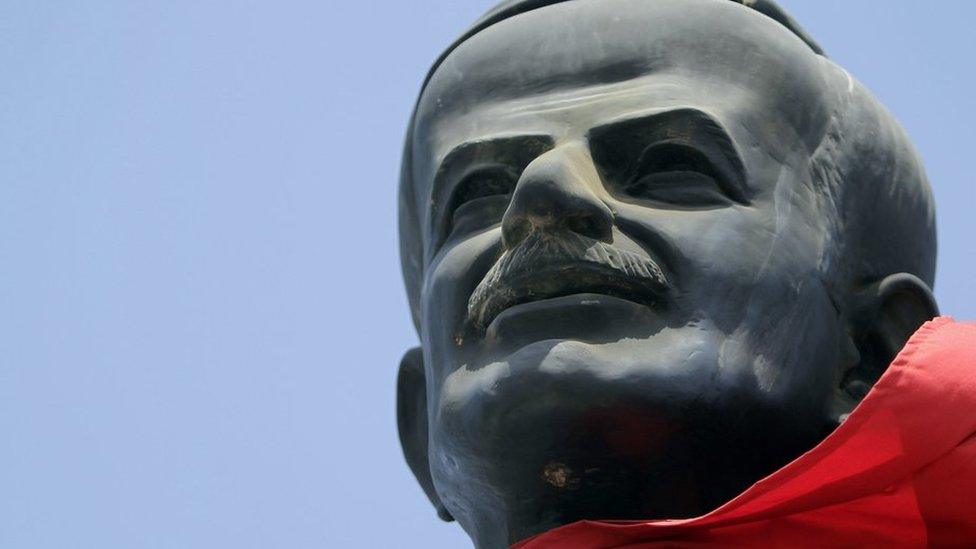Russia seeks to allay Israel fears over Syria build-up
- Published
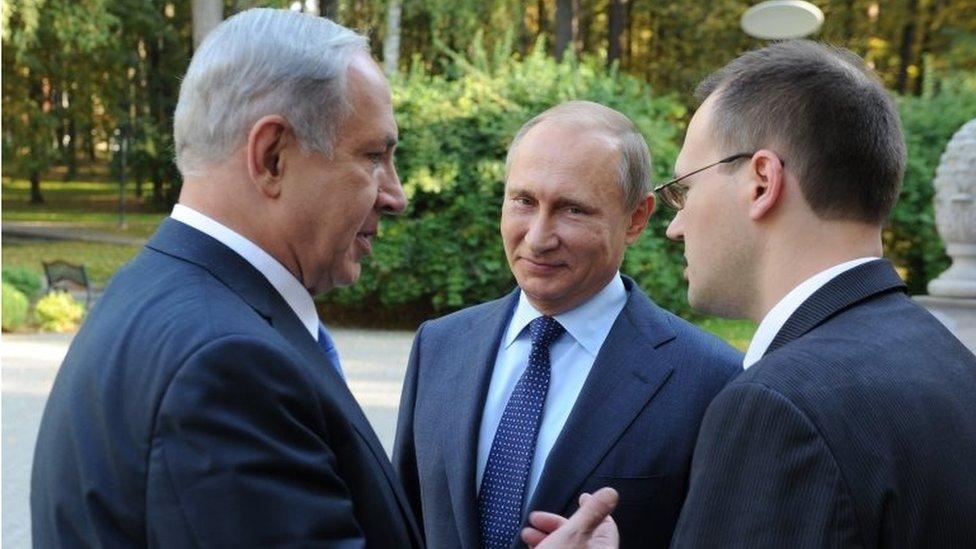
Israel is concerned that its ability to strike at threats in Syria might be made more complicated
Russian President Vladimir Putin has sought to allay Israeli concerns at Russia's military build-up in Syria.
At talks in Moscow, he told Israeli Prime Minister Benjamin Netanyahu that Russia's actions in the Middle East would always be "responsible".
Mr Netanyahu is concerned by the possibility of Israeli and Russian forces inadvertently trading fire.
Israel has periodically struck inside Syria against militants it says have been plotting attacks against it.
It has also responded to shellfire from forces loyal to Syrian President Bashar al-Assad, who Russia has backed throughout the four-year uprising against his rule.
But in the past week, US officials have confirmed reports that the Russian military has sent warplanes, helicopters, tanks, artillery guns, armoured personnel carriers and 200 marines to an airfield near Mr Assad's ancestral home in Latakia province.
They believe Moscow plans to turn the airfield into a forward operating base that could allow it to send a large number of troops to Syria and launch air strikes.
'Second terrorist front'
Israel is believed to have previously targeted Syrian and Iranian weapons convoys in Syria meant for the Lebanese militant group Hezbollah, though it has not officially acknowledged this.

Analysis by Jonathan Marcus, BBC diplomatic correspondent
Benjamin Netanyahu's visit to Moscow comes at a time of deepening Russian military involvement in Syria.
The arrival of Russian fixed-wing combat aircraft at the airbase in Latakia only accentuates the questions surrounding Moscow's military presence there.
According to satellite photos obtained by Stratfor - a US think-tank - the jets appear to be four Sukhoi Su-30 multi-role fighters and up to a dozen possible SU-25 ground attack aircraft.
Their deployment came shortly after initial military-to-military contacts between the US and the Russians at the end of last week.
The US is operating warplanes against so-called Islamic State targets in Syrian airspace and Israel too is concerned about the potential constraints on its military freedom of action over southern Syria.
That's why Mr Netanyahu visited Moscow. Clearly all three countries need to have some sense of what the other might potentially be doing if a damaging incident is to be avoided - especially if Russia intends to use its aircraft to support the Assad regime.

Mr Netanyahu said Iran and Syria were "trying to set up a second terrorist front on the Golan Heights", a Syrian plateau which was mostly captured by Israel in the 1967 Middle East war.
Israel annexed the captured section in 1981, in a move not recognised internationally.
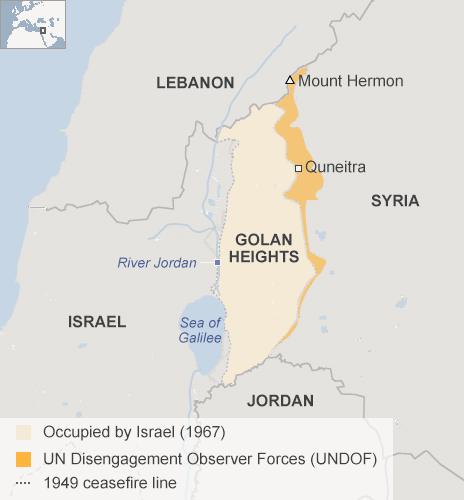
Mr Putin told Mr Netanyahu that Syria had no interest in attacking Israel.
"We know that the Syrian army and Syria as a whole are in such a state that they have no time for a second front. They need to save their own state," he said.
Russia acknowledges supplying weapons to Syria and sending military experts to train government forces in their use, but denies they are involved in combat.
- Published21 September 2015
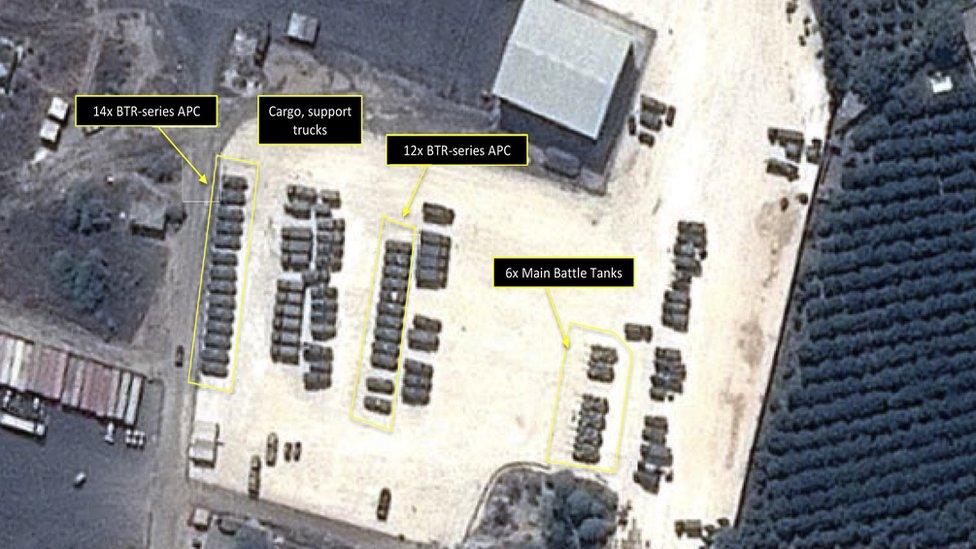
- Published15 September 2015
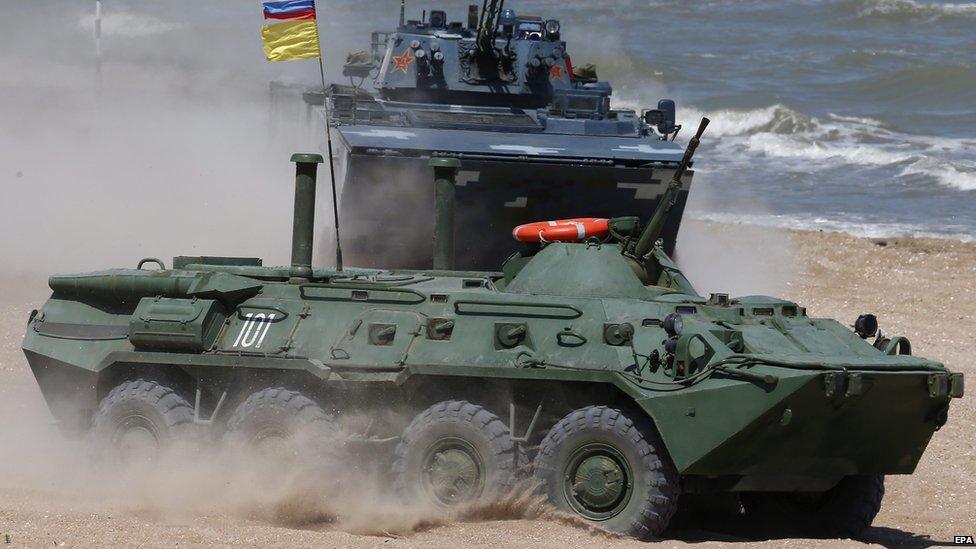
- Published14 January 2019
